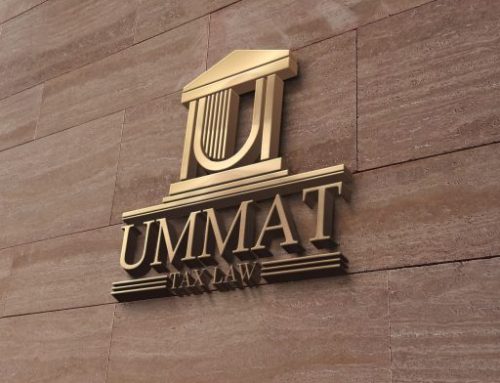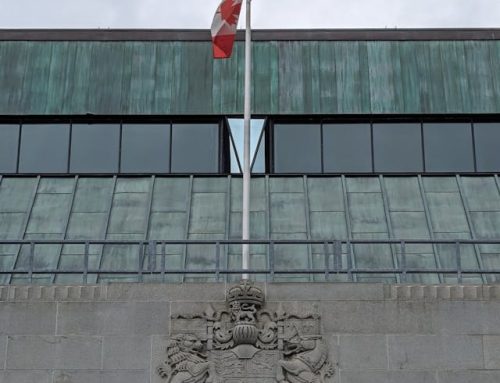Priority Foundation v. Minister of National Revenue: Court Ruling on Document Disclosure Under Federal Courts Rules
By: Amit Ummat
In Priority Foundation v. Minister of National Revenue 2023 FCA 207 (“Decision”), the Court was tasked with deciding whether the Respondent was required to tender documents requested by the Appellant under Rule 317 of the Federal Courts Rules, SOR/98-106 (“FCR”). The Court ruled in favor of the Appellant ordering the Respondent to tender the withheld documents to the Appellant and the Registry because they were relevant to the subject appeal and producible under Rule 318 of the FCR.
Rule 317 and 318 of the FCR
At the outset, it is essential to briefly explain Rules 317 and 318 of the FCR. Rule 317 grants a party the right to request from a tribunal ‘material relevant’ to the appeal. The relevance of the material is determined by reference to the Notice of Appeal, with the Court required to interpret the pleading “holistically and practically”, focusing on the essential character of the issues rather than on technicalities or form (Decision at Paragraph 18). Once a request is made under Rule 317 of the FCR, Rule 318(1) of the FCR requires that the request material be provided within 20 days, unless the party required to disclose objects to the request under Rule 318(2) of the FCR.
When a Court is tasked with determining whether an objection under Rule 318(2) of the FCR is appropriate, the Court has three objectives it considers:
- “meaningful review of administrative decisions, which the reviewing court will be unable to engage in without being satisfied that the record before it is sufficient to proceed with the review;
- procedural fairness; and
- the protection of any legitimate confidentiality interests while ensuring that court proceedings are as open as possible” Girouard v. Canadian Judicial Council, 2019 FCA 252, [2019] F.C.J. No. 1160 at para. 18.
Background
The Minister issued a notice of intention to revoke the Appellant’s registration (“NIR”) as a charity under subsection 168(1) of the Income Tax Act, R.S.C. 1985, c. 1 (5th Supp) (“Act”). Following the expiry of thirty (30) days from the date the NIR was mailed, the Respondent published the NIR in the Canada Gazette. The Appellant contended that this action by the Respondent was unlawful under paragraph 168(2)(b) of the Act.
The Appellant requested under Rule 317 of the FCR for the Respondent to provide a certified copy of the following documents to it and the Registry:
“1. All materials produced by, referenced, consulted, or relied upon by the Minister in deciding to issue its notice of intention to revoke the appellant’s registration;
2. All materials produced by, referenced, consulted, or relied upon by the Minister in deciding to publish a copy of the notice of intention to revoke in the Canada Gazette [the “Publication Documents”]; and
3. If the Minister objects under Rule 318(2), a list describing each document that the Minister objects to producing, including materials not produced because the Minister believes the material is already in the possession of the appellant.”
The Respondent objected to the production of the Publication Documents under Rule 318(2) of the FCR but was agreeable to provide the other documents requested by the Appellant. This led the Appellant to seek an order from the Court requiring the Respondent to provide the requested documents to both the Appellant and the Registry, in accordance with Rule 318(4) of the FCR. Notably, in the Respondent’s objection and submissions to the Court it did not claim that the Publication Documents were or contained confidential documents/information.
Reasoning
The Court explained that “[i]f the Minister’s decision to publish the NIR is subject to the 172(3)(a.1) appeal, the materials produced, referenced, consulted, or relied upon by the Minister in making the decision to publish the NIR challenged by the appellant in its grounds of appeal are relevant to the appeal” (Decision at Paragraph 31). This underscores the importance of determining the proper scope of paragraph 172(3)(a.1) of the Act, a question that the Appellant and Respondent did not address in their respective submissions by referring to any Court decision that provides a definitive answer. As a result, the Court ruled that this issue should be considered by the Court panel hearing the merits of the appeal. Furthermore, the Court found that to enable the Court panel to properly review the Minister’s decision, it must have access to the full record, including the Publication Documents. The Court explained that this is especially important given the Respondent’s submissions regarding the scope of 172(3)(a.1) appeal could be interpreted as effectively shielding the Minister’s discretion to publish the NIR from judicial review, an issue that the Court believes should be determined by the hearing Court panel.
Takeaway
The Decision emphasizes that documents potentially relevant to the grounds or relief outlined in a pleading should be disclosed. The Court hearing the appeal will ultimately determine their relevance after reviewing the full range of submissions, evidentiary materials, and legal arguments. When examining Rule 317 of the FCR requests, the Court must balance principles of materiality and proportionality with the need for expedience, cost-effectiveness, and confidentiality. This ensures that the Court can make an informed and fair decision regarding the relevance of the requested materials.




